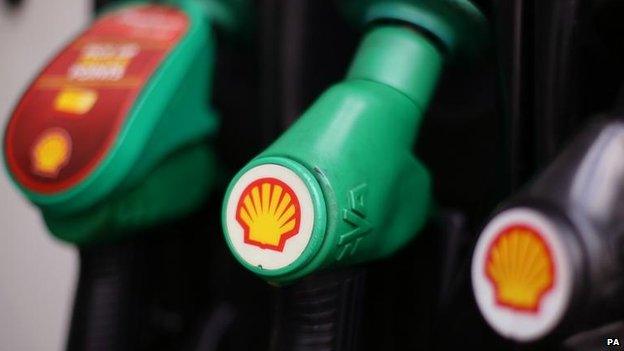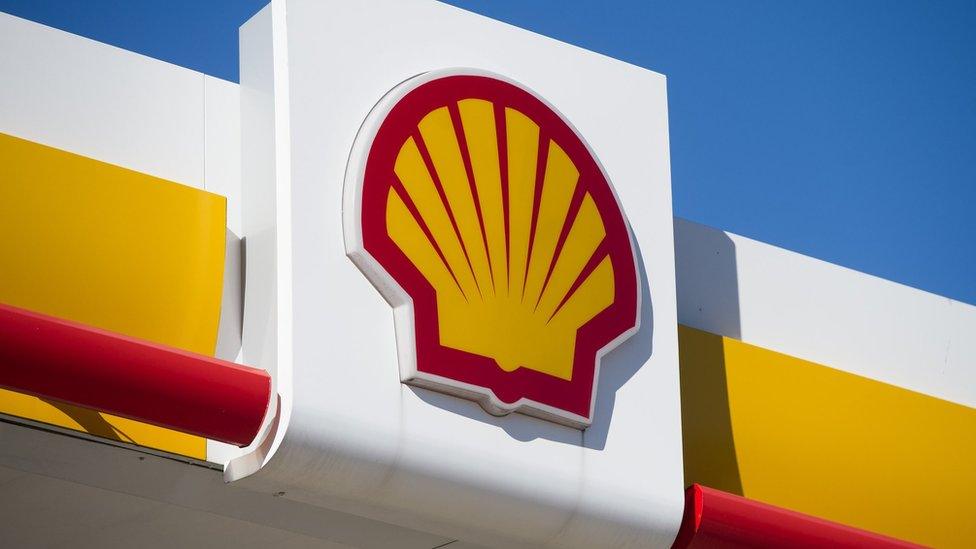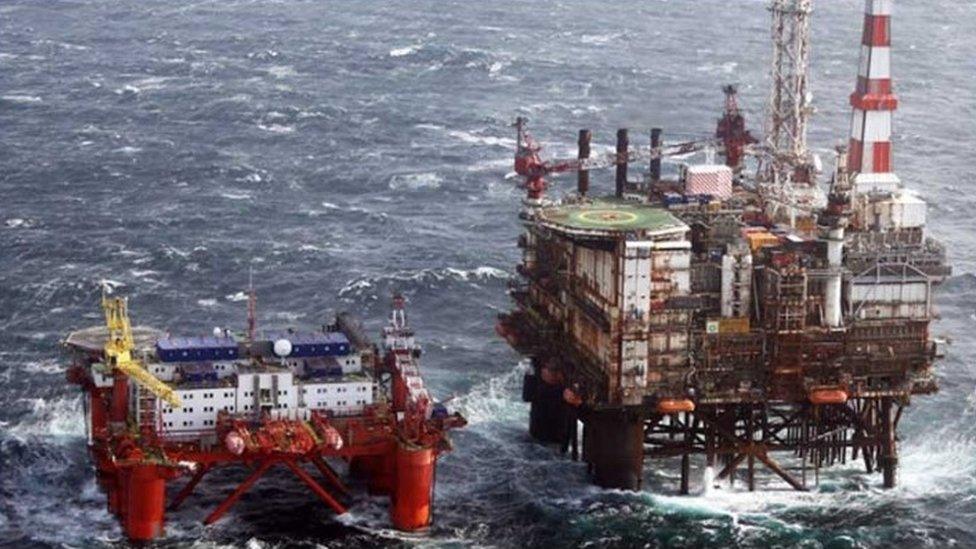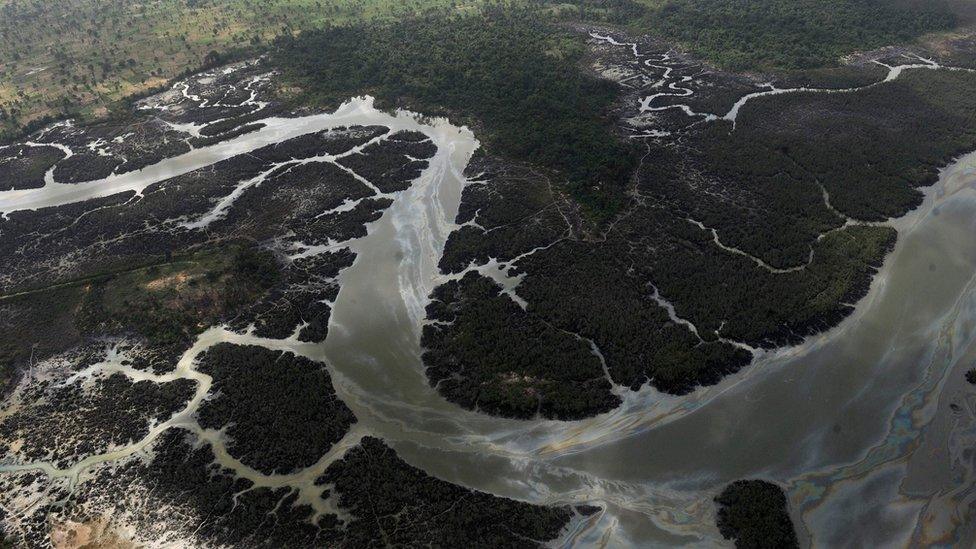Shell profits held back by BG takeover
- Published

Royal Dutch Shell profits last year were held back by the cost of its record-breaking purchase of BG Group, and a lacklustre performance from its oil and gas trading arm.
Shell, the UK's biggest oil company, saw 2016 profits fall from $3.8bn (£3bn) to $3.5bn.
In the final quarter of the year, profits dipped to $1bn from $1.8bn for the same period a year earlier.
Shareholders, however, will be cheered by the company's underlying strength.
Shell's chief executive, Ben van Beurden, said the fourth quarter fall was in part the legacy of its BG acquisition and the reassessment of its tax position.
He told the BBC that this cost Shell about half a billion dollars and there were also headwinds from poor conditions for its trading unit.
Peak oil
The oil giant is the biggest company - and biggest dividend payer - in the FTSE 100, and its payouts are vital to the pension funds of millions.
Mr van Beurden said the cash inflow during the final quarter had been $9bn, more than covering the dividend, and that the company had also been able to repay $4.5bn worth of debt.
Some analysts had become worried that Shell was borrowing to fund its dividends.
Mr van Beurden said he would not offer oil price forecasts - "because we are not very good at that" - but said he expected the point of peak global oil demand "sometime in the 2030s" and that gas demand would continue to grow after that: "I don't expect there to be a sudden falling off of demand for oil after that - it will be a flat peak."
Shell is the middle of a $30bn sale of oil and gas fields following the BG deal, and earlier this week sold a clutch of North Sea assets for nearly $4bn.
Mr van Beurden said it was part of a winnowing out of the company's portfolio to concentrate on "younger, more profitable assets".
- Published31 January 2017

- Published24 January 2017

- Published26 January 2017
